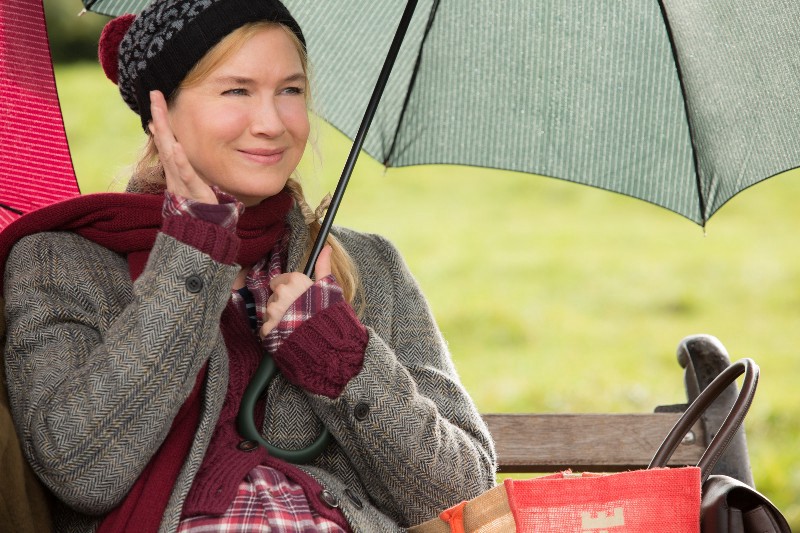Oscar winner Renee Zellweger recently sat down with The Hollywood Reporter for a wide-ranging, in-depth interview in anticipation of her eagerly awaited reprisal of her most beloved role. “Bridget Jones’s Baby” hits theaters September 16. The third installment of the franchise, directed by Sharon Maguire (who directed the first film), marks Zellweger’s return to acting after a six-year hiatus, or as she calls it, time spent “under the radar.”
“I wanted to grow,” she explained. “If you don’t explore other things, you wake up 20 years later and you’re still that same person who only learns anything when she goes out to research a character. You need to grow!”
During this time away from the limelight, Zellweger pursued another passion: screenwriting. She enrolled in courses at UCLA, and collaborated on a TV pilot with one of her professors that the pair pitched to Lifetime. The series, which was ultimately passed on, would’ve followed a group of young songwriters in 1960s Los Angeles.
The “Chicago” star shared, “Writing is something that has always been part of my life. I’m tapping into it because it makes me happy.” Zellweger observed that she’s one of many women looking to get involved behind-the-scenes. She said, “There are so many women now who are answering their creative calling — writing, producing, directing. I have a lot of girlfriends who would like to produce material that matters in some way.”
When asked about aging in Hollywood, Zellweger responded, “I’ve never seen the maturation of a woman as a negative thing.” She elaborated, “I’ve never seen a woman stepping into her more powerful self as a negative.”
We love this confident, insightful answer. But Zellweger doesn’t like being asked questions like this. After extolling the virtues of aging, Zellweger suggested “this conversation perpetuates the problem.” She asked, “Why are we talking about how women look? Why do we value beauty over contribution?”
While most of us would like to close the book on this conversation, it is still important to have precisely because of the double standard Zellweger described, and the fact that women disappear from screen once they hit the age of about 40.
According to research from Dr. Martha Lauzen, in the top 100 grossing films of 2015, males 40 and over accounted for 54 percent of all male characters, whereas females 40 and over comprised 34 percent of all female characters. That’s nearly a 20 percent difference. And as Lauzen writes, “the percentage of male characters in their 50s (17 percent) is almost twice that of female characters in their 50s (9 percent).” So we at Women and Hollywood believe it is important to ask what it’s like to age in the industry, partly because so few actresses actually get to age in Hollywood and continue to work. The world is not just populated by ingenues — and it’s time the film industry recognizes this.
As another Oscar winner, Sally Field, commented, “They don’t write roles for women… and they certainly don’t write roles for women of age and women of color.” This year’s “My Name is Doris” marked Field’s first leading role in almost 20 years, a fact she chalked up to the lack scripts with older female protagonists.
All of this being said, Zellweger’s desire to change the subject makes sense, particularly given the ridiculous attention she’s received recently for her looks.
Check out the full interview with Zellweger over at The Hollywood Reporter.







